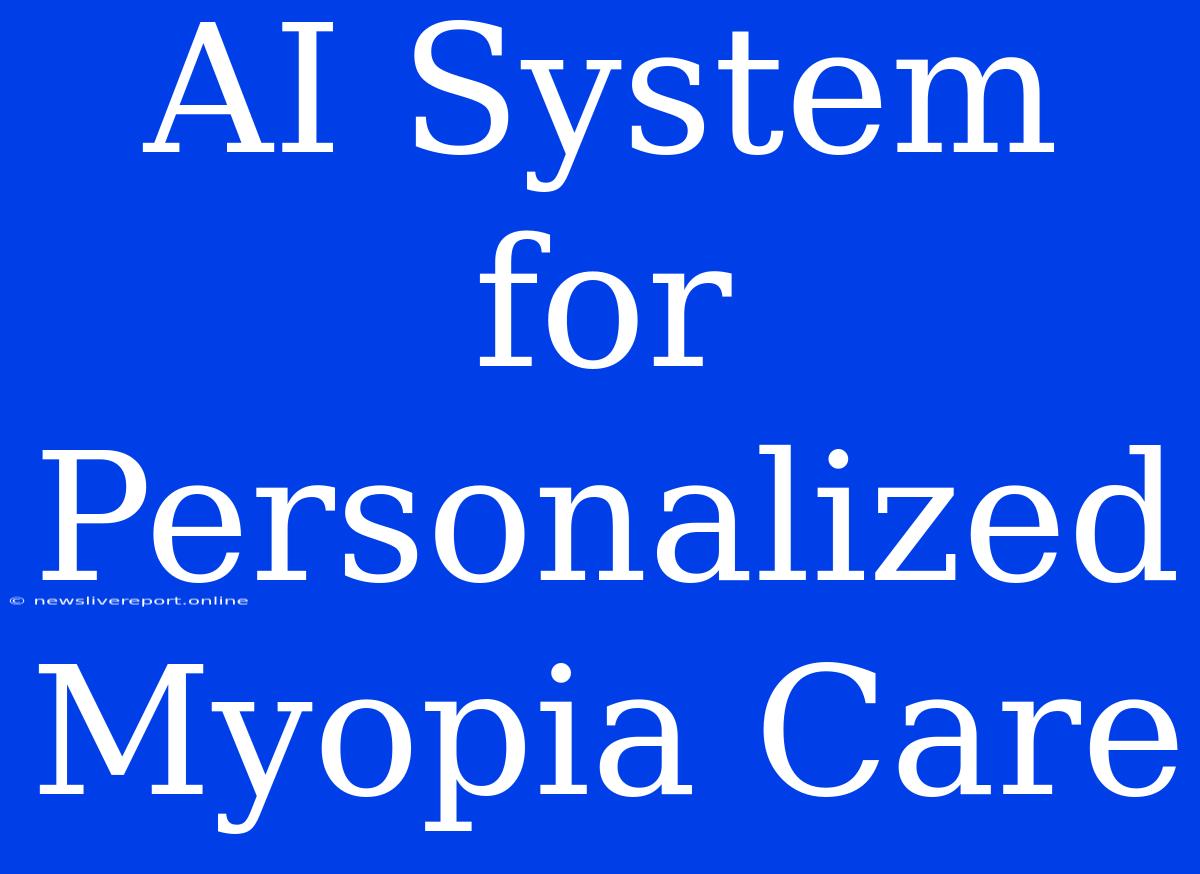AI System for Personalized Myopia Care: The Future of Eye Health
Myopia, or nearsightedness, is a growing global health concern affecting millions worldwide. This vision condition, characterized by the inability to see distant objects clearly, can lead to a range of complications in the long run. However, the advent of artificial intelligence (AI) promises a revolutionary shift in myopia care, offering personalized solutions and potentially halting the progression of the condition.
The Need for Personalized Myopia Care
Traditional myopia management methods often involve corrective lenses and eye drops, but these approaches lack individualization and can sometimes be ineffective in controlling myopia progression. The realization that myopia is a complex condition influenced by multiple factors, including genetics, environmental influences, and individual lifestyle, has led to the development of AI-powered systems for personalized myopia care.
How AI is Revolutionizing Myopia Care
AI systems for myopia care leverage vast datasets of patient information, including medical history, eye scans, and lifestyle habits. This data is then analyzed using sophisticated algorithms to create personalized treatment plans that address the individual needs of each patient.
Key Benefits of AI-powered Myopia Care:
- Precision & Personalization: AI systems can analyze individual eye characteristics and provide customized treatment plans, increasing the effectiveness of myopia management.
- Early Detection & Intervention: AI algorithms can analyze images and identify early signs of myopia development, enabling early intervention and potentially slowing or halting its progression.
- Proactive Monitoring: AI systems can continuously monitor patient progress and adjust treatment plans as needed, ensuring optimal myopia control.
- Improved Patient Engagement: AI-powered apps and platforms can engage patients with interactive tools and personalized insights, promoting adherence to treatment plans and increasing overall awareness of myopia management.
Examples of AI Applications in Myopia Care:
- Automated Eye Exam Analysis: AI algorithms can analyze fundus images and OCT scans to identify myopia-related changes with high accuracy, enabling early diagnosis and intervention.
- Treatment Plan Optimization: AI can personalize myopia management based on individual factors like age, refractive error, and lifestyle, leading to more effective treatment outcomes.
- Predictive Modeling: AI models can predict myopia progression and identify high-risk individuals, allowing for proactive interventions and targeted treatment strategies.
- Patient Education & Support: AI-powered apps can provide personalized education, reminders, and support to patients, promoting treatment adherence and improving overall myopia management.
Future Directions & Ethical Considerations:
The field of AI in myopia care is rapidly evolving, with ongoing research and development focusing on:
- Integration with Smart Devices: AI-powered apps and wearables can continuously monitor eye health and provide real-time feedback for personalized myopia management.
- Development of AI-assisted therapies: AI algorithms can guide the design and development of new and improved myopia therapies, targeting specific needs and enhancing treatment efficacy.
- Ethical Implications: As AI plays a more prominent role in healthcare, it is essential to address ethical considerations like data privacy, algorithmic bias, and the potential for overreliance on AI systems.
Conclusion
The application of AI in myopia care promises a personalized and proactive approach to manage this widespread vision condition. By leveraging the power of data analysis and advanced algorithms, AI systems can potentially improve treatment outcomes, enhance patient engagement, and ultimately contribute to a brighter future for eye health.

